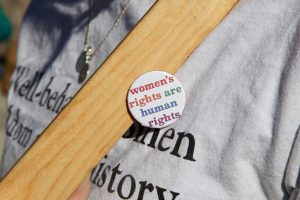“They (terrorists) hate what they see right here in this chamber: a democratically elected government. Their leaders are self-appointed. They hate our freedoms: our freedom of religion, our freedom of speech, our freedom to vote and assemble and disagree with each other.” – George W. Bush
Ask any “patriot” what is great about the United States and they will use the word freedom. If you ask them why we are at war, they will say to protect our freedom. If you ask what our country was founded on, they will tell you Christianity…and freedom. Is there any truth to that?
WHAT?! The “land of the free?” Whoever told you that is your enemy! – Zack de la Rocha
There are attempts to measure freedom. Heritage foundation indexes “economic freedom,” placing the U.S. at 18. This is behind Hong Kong, Singapore, Australia, New Zealand, and a large swath of the EU. Cato Institute also ranks our “economic freedom” at 17th, while ranking our “personal freedom” at 24th. If one points this out, we are reminded that “they can’t own guns,” which is a topic for another article. Europeans have expressed amazement at America’s obsession with freedom while having the highest prison population on earth. Were we really free at some point and our country has collapsed until we’ve reached this point? This article will explore what freedom is in the United States and if we really have any. Due to the scope of the article, it will be broken into sections.
Voting

Initially, the colonies were happy with British rule. They pushed back against taxes, but only because they had no real representation with the British rulers. (Taxes in England were much higher than the Americas). The situation deteriorated as each side retaliated against one another, escalating in each step. The colony finally won its independence from England and began forming its own government.
The first attempt at government was too weak. Shay’s Rebellion took place, as ordinary citizens rebelled against the new, yet still repressive, government. The fledgling unites states met again to strengthen their government with the U.S. Constitution. Initially, no elections would be held in the sense we have them now. The states would appoint members of Congress, and the electors that would choose the President. While states enacting voting systems to choose these people, their individual laws prohibited blacks, women, and men without property the right to vote in nearly every case. Some states even forbid Catholics and Jews from voting. While taxation without representation was the rallying cry for the Revolution, the new government severely restricted the representation of people in the government. White male land owners (estimated at between 6 to 20 percent of the population) were the only ones represented at all.
In 1856, the last state (North Carolina) that required property ownership to vote removed the law, allowing all white men to vote. It took until 1870 (the 15th Amendment) for “race, color, or previous condition of servitude” to protected as voters. In 1913, Senators become directly elected as a matter of law (17th Amendment). Women were finally recognized in 1920 (19th Amendment) as having protected rights to vote. 1924 brought the granting of citizenship to Native Americans. Protection from taxes required to vote in 1964 (24th Amendment). The next year, the Voting Rights Act of 1965 became the law by which the 15th Amendment could be enforced. All legal adults (which is to say, 18 years old) are granted the right to vote in 1971 (26th Amendment). The Uniformed and Overseas Citizen Absentee Voting Act of 1986 was enacted to give voting rights to America’s living abroad.
Unfortunately, the court continued to rule on states having the right to discriminate locally. It wasn’t until the 1960’s that a majority of blacks (especially in Southern States) had any real right to vote. Women also had trouble exercising their new constitutional rights. Currently, the war to force voters to show identification runs directly against the 24th Amendment, since ID cards must be purchased from the government. All it would take is for government ID cards to be issued freely, but as you can see, it has never been about getting the vote out, but my suppressing it.
Sexual Freedom

In recent years we have seen great improvement in the civil rights of LGBT people in the United Sates. This has come after a long history of discrimination. The native populations of the new world we very accepting of trans and homosexual people; the Puritan settlers, not so much. While there were some specific cases of acceptance, (Europeans had written letters back to the old world referencing the appalling number of homosexuals in port cities and the scandal of women owning their own businesses) the official view of the British was homosexuality was punishable by death and the United States kept this tradition until 1873, when the last state dropped the death penalty for the act of Sodomy. Consensual sex between same sex people was finally declared legal by the supreme court in 2003, but as of 2016, sodomy (which is oral or anal intercourse) between anyone (gay or straight, married or single) is still illegal in many places. Lest you think it is simply a law that is never enforced and forgotten, Louisiana recently arrested several people for sodomy and tried to convict, but the State Attorney threw it out because it is literally impossible to convict someone of an act that the Supreme Court has ruled legal. That prompted the State government to vote on repealing the law, with they did…and voted to keep it. While homosexual coupes are now allowed to legally wed in the U.S. since 2013, they face a tremendous backlash against Christians who feel their very existence is a personal attack.
Women have also faced tremendous restrictions in the U.S. In 1978, a court case focused the country on the fact that raping your wife was protected by law. Very quickly, states moved to change their laws to insure rape was a crime, even if the victim and assailant were married. In the 1980’s, a few states had their laws decided by the Supreme Court, and by 1993, the last of the states finally passed laws making spousal rape a crime.
Probably the most widely known sexual law concerns birth control and abortion. As a response to the rise of pornography available in the Civil War (soldiers will be soldiers), the Comstock Laws were passed in 1873. This restricted obscenity (i.e. pornography), contraceptives, abortifacients, sex toys, personal letters with any sexual content, or any information regarding the above items to be sent through the US Postal Service. In at least one state, the act of using contraceptives was a crime, and most states had laws making disseminating information about contraceptives a crime. In 1916, Margret Sanger was diagnosed for “maintaining a public nuisance” by running a birth control clinic. Although Ms. Sanger went on to help develop birth control pills in the 1950s, it wasn’t until 1965 that the Supreme Court ruled that married couples could not be legally prohibited from using birth control. A string of rulings followed. In 1972, unmarried couples could legally use contraceptives, in 1973, abortion became legal, in 1977 age limits were lifted for access to contraceptives, and in 2003, Sodomy laws were declared unconstitutional. But it gets worse.
In 1998, Alabama made it illegal to sell sex toys for the purposes of…well, sexual pleasure. In 2012, Tennessee made a law forcing schools to adopt abstinence only education. This law also specifies prohibits teaching about “gateway sexual activities” such as kissing. Again, these two laws were passed in 1998 and 2012, not 1898 and 1812.
Women’s Rights

From day one, women in the United States couldn’t own property. It wasn’t until 1839 that the first state (Mississippi) allows women to own property in their name (with their husband’s permission, of course). The year Susan B Anthony was arrested for voting (1872), female federal employees were guaranteed equal pay. A year later, the Supreme Court upheld a state law prohibiting married women from practicing law. In 1880, women who we not allowed to invest their own money without a man’s “help” opened their own stock exchange. By the turn of the century, all states have finally passed laws allowing married women to own property (and keep their own wages) in their name.
The 19th Amendment is ratified in 1920, declaring rights of citizens extend to women. The following century has a string of rulings, laws, and executive orders in favor of women’s work rights. Woman can work any shift (1924), equal pay by sex or race (1963), employment discrimination made illegal (1964), employment discrimination again (federal contractors, 1968), Supreme Court finally declares women “persons” (Reed v Reed 1971). In 1976, a law having sex-based drinking ages was struck down. Until 1984, women could be excluded from civic organizations like the Jaycees.
We hold these truths to be self-evident, that all men are created equal, that they are endowed by their Creator with certain unalienable Rights, that among these are Life, Liberty and the pursuit of Happiness. – U.S. Declaration of Independence
That will be enough for today. As you can see, the United States has a glorious history of suppressing the rights of most of its citizens. Our self-evident, unalienable rights have not been guaranteed, but fought for and won over that last 250 years and are still under assault. In later editions we will look at the rights of children, minorities, and economics.






One thought on “American Freedumb”